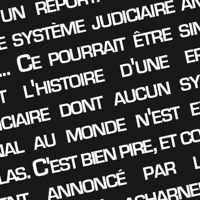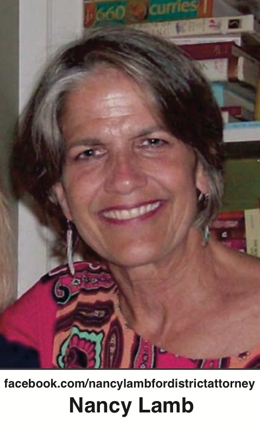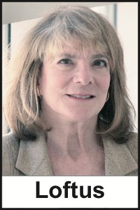Rascals case in brief
In the beginning, in 1989, more than 90 children at the Little Rascals Day Care Center in Edenton, North Carolina, accused a total of 20 adults with 429 instances of sexual abuse over a three-year period. It may have all begun with one parent’s complaint about punishment given her child.
Among the alleged perpetrators: the sheriff and mayor. But prosecutors would charge only Robin Byrum, Darlene Harris, Elizabeth “Betsy” Kelly, Robert “Bob” Kelly, Willard Scott Privott, Shelley Stone and Dawn Wilson – the Edenton 7.
Along with sodomy and beatings, allegations included a baby killed with a handgun, a child being hung upside down from a tree and being set on fire and countless other fantastic incidents involving spaceships, hot air balloons, pirate ships and trained sharks.
By the time prosecutors dropped the last charges in 1997, Little Rascals had become North Carolina’s longest and most costly criminal trial. Prosecutors kept defendants jailed in hopes at least one would turn against their supposed co-conspirators. Remarkably, none did. Another shameful record: Five defendants had to wait longer to face their accusers in court than anyone else in North Carolina history.
Between 1991 and 1997, Ofra Bikel produced three extraordinary episodes on the Little Rascals case for the PBS series “Frontline.” Although “Innocence Lost” did not deter prosecutors, it exposed their tactics and fostered nationwide skepticism and dismay.
With each passing year, the absurdity of the Little Rascals charges has become more obvious. But no admission of error has ever come from prosecutors, police, interviewers or parents. This site is devoted to the issues raised by this case.
On Facebook
Click for earlier Facebook posts archived on this site
Click to go to
Today’s random selection from the Little Rascals Day Care archives….
Click for earlier Facebook posts archived on this site
Click to go to
Today’s random selection from the Little Rascals Day Care archives….
French had incisive title for ‘Innocence Lost’: ‘A Judicial Harassment’
 April 18, 2017
April 18, 2017
“C’est un reportage accablant sur le système judiciaire américain…. Ce pourrait être simplement l’histoire d’une erreur judiciaire dont aucun système pénal au monde n’est exempt, hélas. C’est bien pire, et correctement annoncé par le titre français : ‘ Un acharnement judiciaire.’ “
– From “Persécution judiciaire” by Guy Baret in Le Figaro (March 25, 1999)
That is:
“[Innocence Lost] is a damning report about the U.S. judicial system…. This could just be the story of a miscarriage of justice of which no criminal justice system in the world is free, unfortunately. It’s much worse, and properly announced by the French title: ‘A judicial harassment’….”
Apparently critic Baret wasn’t the only one in France to look skeptically at “satanic ritual abuse” claims. I haven’t found a single example of a French day-care prosecution during the moral panic.
![]()
‘Started as a rumor – not about molestation, not at first….’
June 24, 2013
“(I) followed the Little Rascals case closely in the Norfolk and other papers…. Moved by (its) strangeness and patent senselessness, as well as by reports nationwide at the time of what came to be tagged ‘false memory syndrome,’ I wrote and later published a short story inspired by the spectacular miscarriage of justice…. The thrust of my story was popular hysteria and jaundiced, ambitious therapists together with a grievous breakdown of the judicial system….
“I believe that behind the recovered memory and child abuse therapeutic notions of that time, so destructive of the lives of the Edenton Seven and many others, lies Freud’s almost immeasurable popular impact on our now so heavily sexualized culture – though the easy lure of the witch hunt seems to have been all too contagious in Edenton’s fearful, credulous and manipulable parents as well.”
– Historian and writer John L. Romjue of Yorktown, Va., responding to “Remembering the shame of the Little Rascals Day Care case” at North Carolina Miscellany (Oct. 24, 2011)
Although “Witches of Devon,” the title story in Mr. Romjue’s 2002 collection, veers dramatically from the course of the Little Rascals case, it does indeed capture the essence: “It had started as a rumor – and not about molestation, not at first. There had been an ‘assault’ incident at Happy Children (day care). Joanne Jamison had spanked a little girl’s bottom and not suitably apologized to the mother….”
Nancy Lamb: ‘Would you want someone like me?’
 June 3, 2014
June 3, 2014
“I want all of you to ask yourselves: If you were to find yourself in the unfortunate circumstance of being the victim of a crime, who would you want representing your interest in the criminal justice system?
“Would you want someone like me, with 30 years experience as a veteran prosecutor, a person who has prosecuted every kind of criminal case there is?
“Or would you want someone like my opponent, whose entire criminal experience comes as in the role of being a criminal defense attorney, defending criminals who commit crimes against the people of the 1st District?”
– Little Rascals prosecutor Nancy Lamb, now a candidate for district attorney, comparing herself – most favorably! – with incumbent Andrew Womble
Lamb won the Democratic nomination for DA in last month’s primary and will face Republican Womble in the general election. Although her campaign website boasts that she has been “nationally recognized for her work with child abuse,” it somehow neglects to mention her star turn in one of the country’s most publicized “satanic ritual abuse” prosecutions. Fortunately, the five months between now and Nov. 4 should provide ample opportunity for her to address that issue.
For therapist, creating memory is easy task
 June 13, 2012
June 13, 2012
“Actually, making a false memory is pretty easy.
“(Psychologist Elizabeth) Loftus describes a father convincing his daughter she’d gotten lost in a mall when she was five years old. At first, the daughter denied any memory of the event, but as the father provided more fake details – ‘Don’t you remember that I told you we would meet at the Tug Boat?’ – the daughter began to ‘remember’ and even provide details of her own. Eventually when her father said, ‘I was so scared,’ she responded, ‘Not as scared as I was!’…
“You can probably imagine the implications of false memory in the courtroom or on the therapist’s couch (which famously leads to the courtroom)….”
– From “How You Remember, How You Decide: Memory Part II”
by Garth Sundem in Psychology Today (October 6, 2010)











0 CommentsComment on Facebook